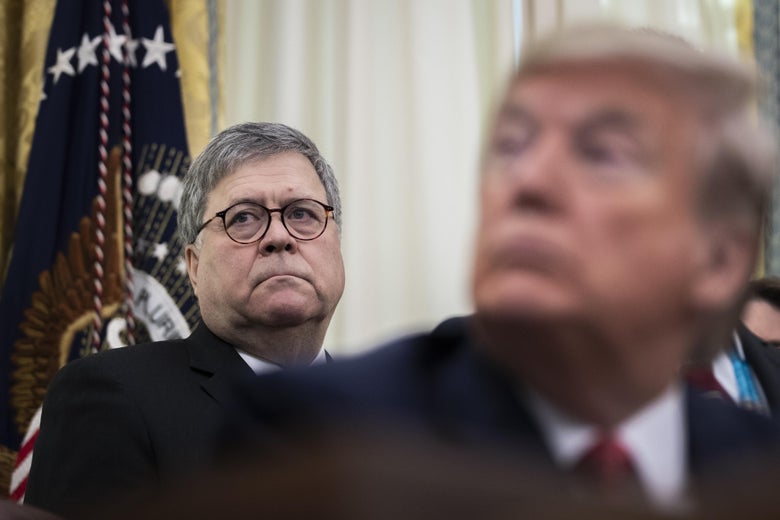The prosecutor handpicked by Attorney General William Barr to scrutinize how U.S. agencies investigated President Trump’s 2016 campaign said he could not offer evidence to the Justice Department’s inspector general to support the suspicions of some conservatives that the case was a setup by American intelligence.
Justice Department Inspector General Michael Horowitz’s office contacted U.S. Attorney John Durham, the prosecutor Barr personally tapped to lead a separate review of the 2016 probe into possible coordination between the Trump campaign and Russia, sources told The Washington Post.
The inspector general also contacted several U.S. intelligence agencies.
Among Horowitz’s questions: whether a Maltese professor who interacted with a Trump campaign adviser was actually a U.S. intelligence asset deployed to ensnare the campaign.
But the intelligence agencies said the professor was not among their assets.
And Durham informed Horowitz’s office that his investigation had not produced any evidence that might contradict the inspector general’s findings on that point.
The previously unreported interaction with Durham is noted in a draft of Horowitz’s forthcoming report on the Russia investigation, which concludes that the FBI had adequate cause to launch its Russia investigation.
Its public release is set for Monday.
That could rebut conservatives’ doubts — which Barr has shared with associates in recent weeks — that Horowitz might be blessing the FBI’s Russia investigation prematurely and that Durham could potentially find more, particularly with regard to the Maltese professor.
Trump and his allies have relentlessly criticized the FBI probe, which was taken over by special counsel Robert Mueller, as a “witch hunt” and pushed for investigations of those who launched it.
They have been eagerly anticipating the release of Horowitz’s report in hopes the watchdog with a nonpartisan reputation might validate their attacks.
Horowitz’s draft report concludes that political bias did not taint how top FBI officials running the investigation handled the case, people familiar with the matter said.
Horowitz’s report addresses in detail the cause — referred to in law enforcement circles as “predication” — for opening the Russia investigation.
The bureau did so after the Australian government passed to the United States a tip that George Papadopoulos, a Trump campaign aide, had boasted about Russia having political dirt on Clinton.
The boasts came before it was publicly known the Kremlin had hacked Democratic emails and stolen information that might be damaging to Clinton’s campaign.
Papadopoulos had been told of the possible dirt by Joseph Mifsud, the Maltese professor.
U.S. officials have long said that they were duty bound to follow up on what seemed to be an alarming tip.
The standard for opening an investigation is low.
FBI officials need only an “articulable factual basis” to believe there has been possible criminal activity or a threat to national security.
U.S. officials suspect that Mifsud has ties to Russian intelligence.
Papadopoulos, who pleaded guilty to lying to the FBI about his interactions with Mifsud, has alleged, though, that he believes Mifsud is some type of Western intelligence asset and that he was set up.
People familiar with the matter said Horowitz queried U.S. intelligence agencies to determine whether there was any truth to that claim and found no evidence Mifsud was a U.S. asset.
He also reached out to Durham to see whether the prosecutor had found anything that might contradict that assessment, and Durham said he had no such evidence.
